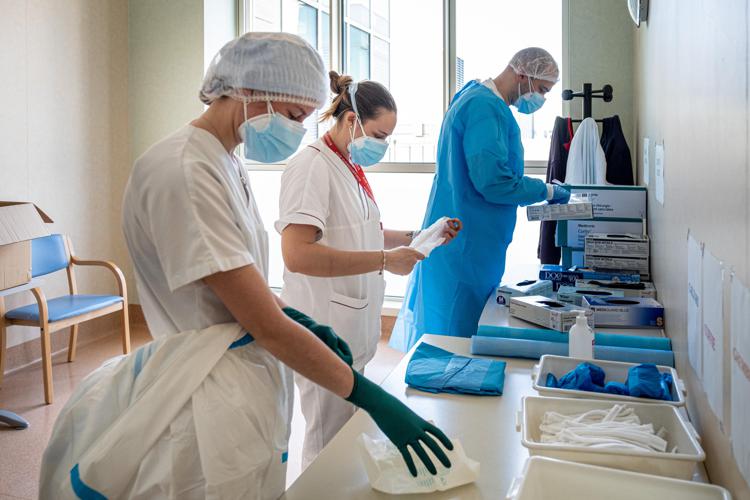Debate in Canada to mandate COVID-19 vaccines for Ontario health-care workers

TORONTO – Even in Canada, which is clearly lagging behind European countries, is igniting the debate on the possibility of imposing the vaccination obligation on health personnel. In the Old Continent, italy was also the forerunner this time: last April 1, the government led by Mario Draghi launched a measure that extended the vaccination obligation for doctors, nurses, health assistants, workers of long-term care homes (RSA) and pharmacists. Italy was therefore the first country to activate this measure, with the aim of protecting the weakest sections of the population and ensuring the functioning of the health system put under pressure by the threat posed by the new variants, in particular delta. On Monday it was the turn of France, with President Emmanuel Macron announcing the tightening: vaccination obligation for all health personnel, with extension also to other working categories that work closely with the weakest sections of the population, even at home. But that’s not all. Soon the obligation of vaccination pass for bars, cafes, restaurants, shopping centers, planes, trains, long-distance buses will come into force. And if Germany through chancellor Angela Merkel has made it known that it will not go down that road, even in Greece it has been decided to crack down.
Now, in light of the threat posed by the Delta variant, the debate is also taking off in our country, also because numerous trade associations – especially those that have paid the highest price from an economic point of view in the most acute phases of the pandemic – are pressing the various levels of government to introduce security elements : the goal is to avoid the prospect of a new lockdown in the event of a fourth wave developing.
Today, the Toronto Region Board of Trade officially asked the Ontario provincial government to approve a vaccination passport to be used for all activities considered non-essential. In Quebec, for example, this type of measure will come into effect in September while other provinces, such as Manitoba, have already begun to issue a special card for all fully immunized residents. “The vaccination passport – said the CEO of the association, Jan De Silva – is the only tool we have available to reopen certain activities such as conferences, as well as to revive tourism. Getting vaccinated is a personal decision, but access to major events requires a moral responsibility.
The road opened by Italy and then traveled by France and Greece is viewed favorably by an ever-increasing number of Canadian virologists and experts. Isaac Bogoch, who in this year and a half of pandemic has become an authoritative voice in Toronto and Ontario, on social media welcomed Macron’s announcement. “We cannot put the most vulnerable at risk: these measures make sense.”
On the other hand, the news events of the last few days remind us how in fact the Covid-19 emergency is not over. Of concern, for example, is the presence of a growing number of outbreaks of Dellta variant in long-term care homes, where only a part of the health personnel are vaccinated against Covid.
David Fisman, professor of Epidemiology at the Dalla Lana School of Public Health at the University of Toronto, said he was in favor of a new clampdown on health care personnel. “The maximum time has now passed for Canada – he wrote on a tweet – there are no longer reasons that justify the failure to vaccinate health personnel. If you have decided to help people, you cannot at the same time become a volunteer carrier of Covid”.
At this point the ball passes to the provincial government, which in the past has expressed prudence on the hypothesis of vaccination obligation to determine categories. Beyond this it must be remembered that in Queen’s Park, officially, no party has directly supported this hypothesis.



